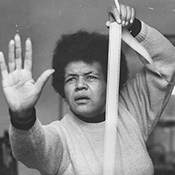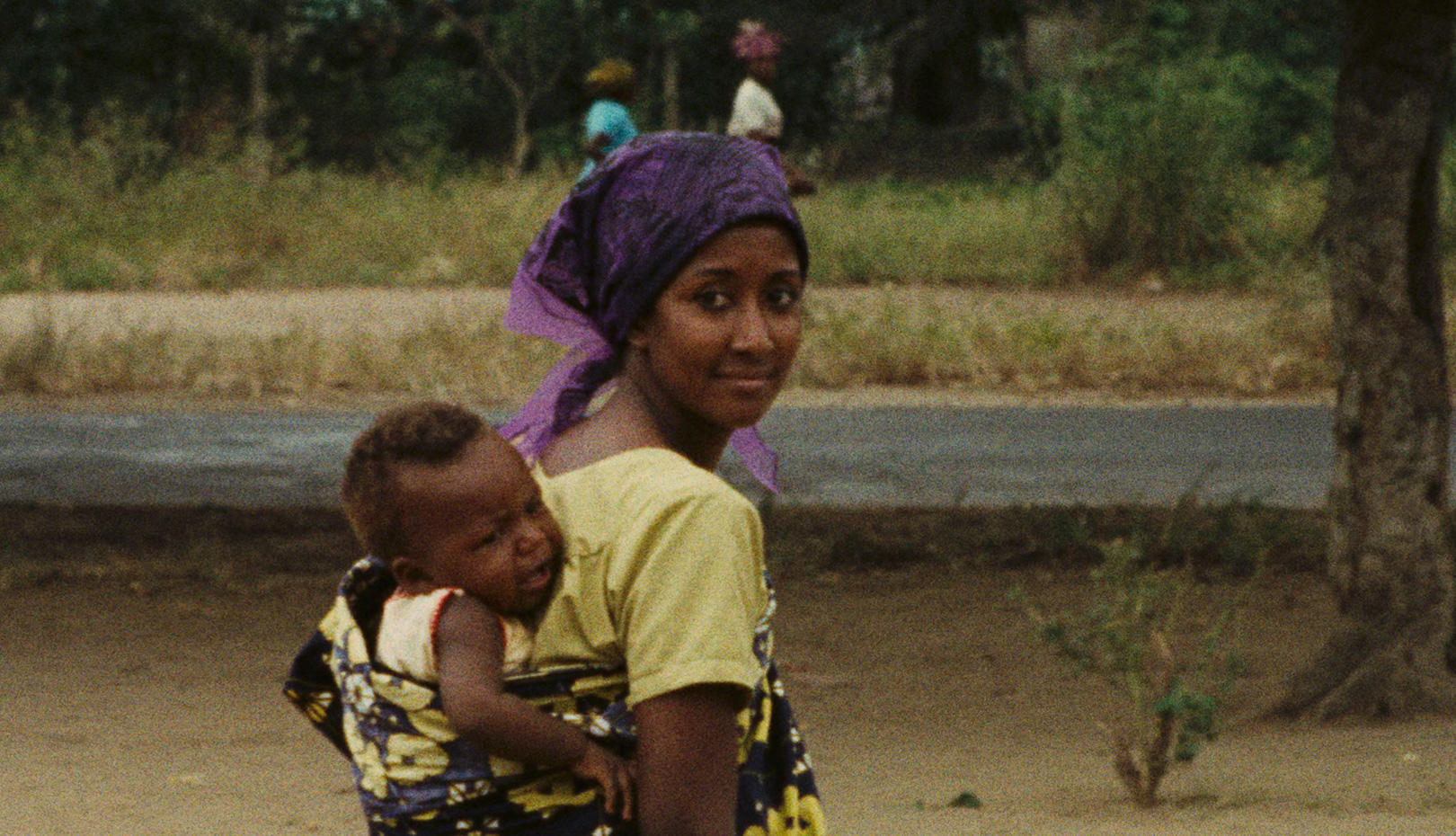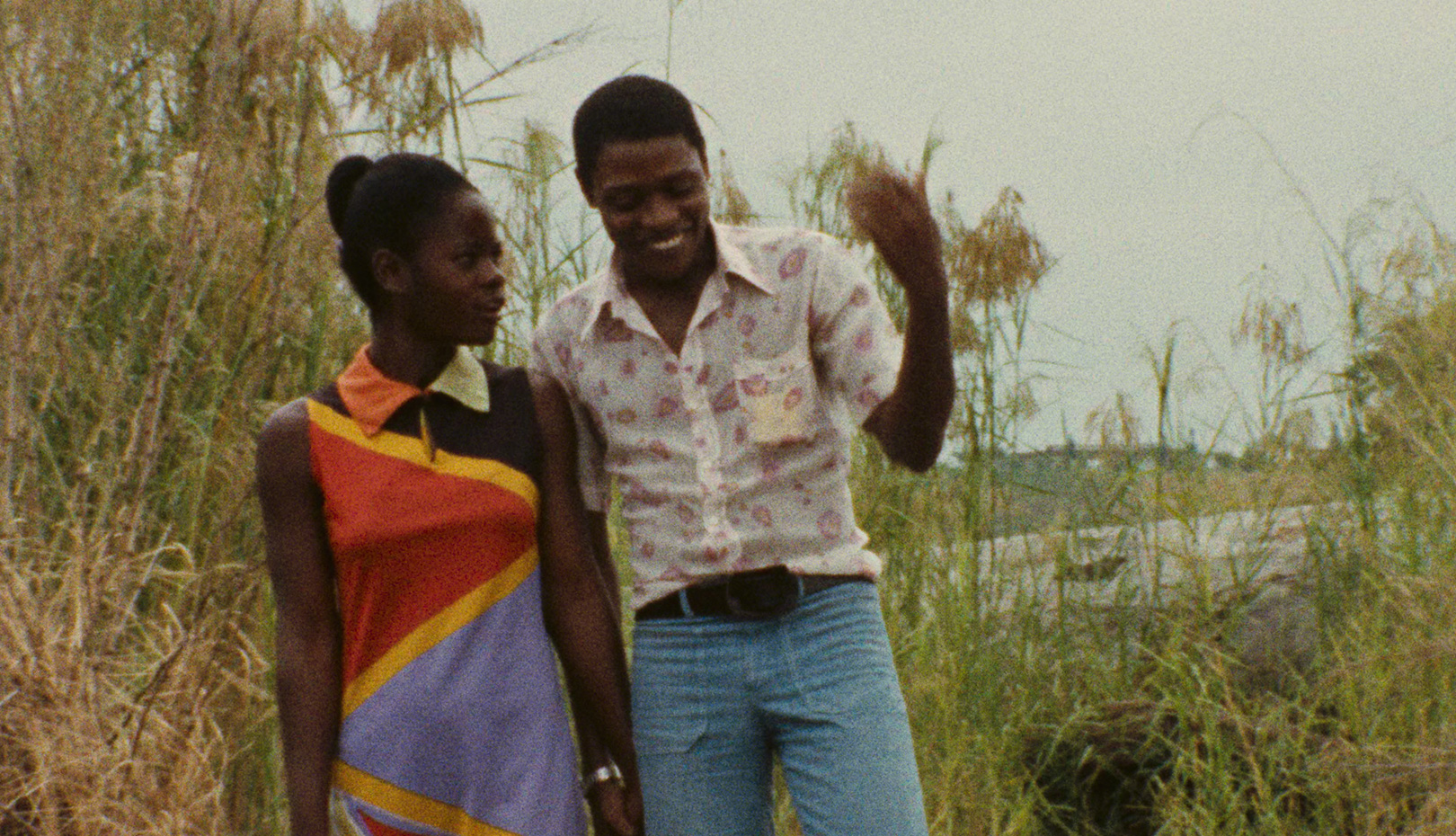24th(2022)
| Opening Film (1) | Discovery (12) |
| Asian Shorts (20) | I-Teens (6) |
| New Currents (26) | The Landscape of Here in Now (5) |
| Polemics (6) | Queer Rainbow (7) |
| Feminist Collective (9) | The moments with Yeri HAN (10) |
| Remembering Oblivion (4) | Restored (10) |
| Film X Gender (2) | Barrier Free (1) |
| Documentary Ock Rang (2) | Special Screening (1) |
| In Memory of KANG Soo-yeon (1) |
Sambizanga
Sarah MALDOROR
- France, Angola
- 1972
- 99min
- DCP
- color
SYNOPSIS
Based on a true story, the film follows a young woman as she makes her way from the outskirts of Luanda toward the city’s center looking for her husband after his arrest by the Portuguese authorities – an incident that ultimately helps ignite an uprising.
* Restored by Cineteca di Bologna and The Film Foundation’s World Cinema Project at L’Image Retrouvée (Paris) from the 35mm original negatives, in association with Éditions René Chateau and the family of Sarah Maldoror. Funding provided by Hobson/Lucas Family Foundation. This restoration is part of the African Film Heritage Project, an initiative created by The Film Foundation’s World Cinema Project, the FEPACI and UNESCO – in collaboration with Cineteca di Bologna – to help locate, restore and disseminate African cinema.



PROGRAM NOTE
Sambizanga is the feature debut of Sarah Maldoror, who passed away due to complications from COVID-19 in 2020. The daughter of emigrants from Guadeloupe, she worked as an assistant director on Gillo Pontecorvo’s The Battle of Algiers (1966) and studied film with Ousmane Sembène in Moscow. The film is set in Luanda, the previous capital of Angola as a Portuguese territory under colonial rule, and Sambizanga, the base of the working class. It focuses on Maria, who is looking for her husband Domingos Xavier, who makes a living as a tractor driver but joins the National Liberation Front of Angola (FNLA), a dangerous secret. Sambizanga is about a figure who cannot reveal his identity. At the same time, it is about the subjugated class who remembers their husbands or comrades branded as traitors by the ruling class. Featuring a cast of nonprofessional actors who were involved in anti-colonial resistance in Africa, Sambizanga is unfamiliar but close. The film portrays people who have to live their lives and protest without time to grieve those whom they have lost. The film leaves a plaintive and intense impression by recollecting old concerns from history and the memories of subordinates. [KIM Seo-yul]
Director
-

Sarah MALDOROR Sarah MALDOROR
Maldoror is respected as the matriarch of African cinema. She was the first woman of color there to make a feature film. For her, from the very beginning, filmmaking was a weapon for struggle and liberation.



